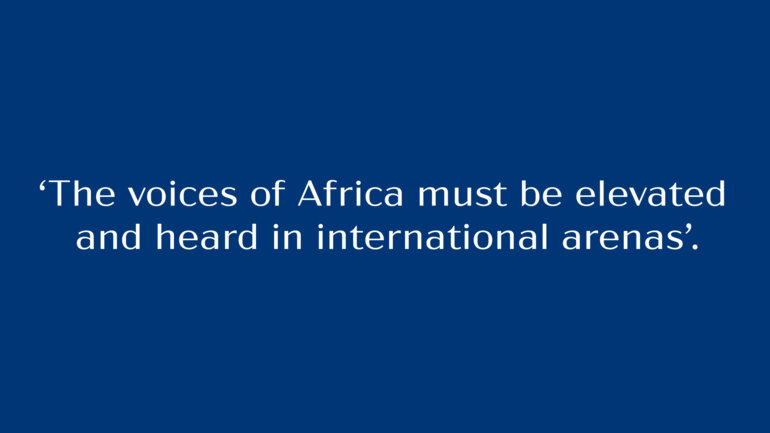

The World Bank’s Board of Executive Directors has approved US$150 million to finance 19 university-based Centers of Excellence in seven countries in West and Central Africa. These competitively selected centers will receive funding for advanced specialized studies in science, technology, engineering and mathematics (STEM)-related disciplines, as well as in agriculture and health.
This landmark Africa Centers of Excellence (ACE) project, which will equip young Africans with new scientific and technical skills, will be financed through IDA* credits to the governments of Nigeria (US$70 million), Ghana (US$24 million), Senegal (US$16 million), Benin, Burkina Faso, Cameroon, and Togo (US$8 million each). The Gambia will also receive a US $2 million credit and a US$1 million grant to provide higher education, including short-term training, to students, faculty and civil servants through the 19 ACEs.
“I am excited to support these pioneering centers of excellence because they will be another step in building and nurturing specialized world-class higher education institutions on the continent,” said Makhtar Diop, World Bank Vice-President for Africa. “I can think of no better way to grow African economies, create jobs, and support research in Africa, than educating young graduates with expertise in high-demand areas such as chemical engineering, crop science, and the control of infectious diseases.”
The continent faces a serious shortage of skilled workers in fast-growing sectors such as extractive industries, energy, water, and infrastructure, as well as in the fields of health and telecommunications. The result of having too few skilled workers in Africa’s extractive industries is that oil and minerals are extracted in Africa but processed elsewhere in the world, to the detriment of African industries and jobs. Africa also suffers from a shortage of trained health workers who can provide high quality maternal health services. This may partially explain why Africa’s maternal mortality rate has remained so tragically high at 500 maternal deaths per 100,000 live births.
Further, Africa needs its own research and innovative solutions to tackle its development challenges including climate change, which calls for urgent measures to increase yields in agriculture; and infectious diseases, which continue to exact a heavy toll on families and economies. However, the researcher-to-population ratio is very low in African countries. Burkina Faso, for example, has 45 research and development (R&D) specialists per million people, and Nigeria has 38, in comparison to an average of 481 in Latin America and 1,714 in East Asia.
The new Bank-financed ACEs offer a regionally integrated way to increase high-quality R&D services that will help meet these challenges, yet are efficient and economical given limited public budgets. Coordination and knowledge-sharing among the 19 ACEs will be managed through the Association of African Universities (AAU), which has received a US$5 million grant for this purpose, and is an important regional partner.
“Students in West and Central Africa urgently need high-quality science and technology programs to compete in their own regional job market as well as the global economy, but not a single university from this part of Africa features in rankings of the world’s top 500 universities,” said Peter Materu, World Bank Education Manager for West & Central Africa. “The African Centers of Excellence project is a win-win initiative—it will help these young people achieve their aspirations without leaving Africa, and it will help firms to find advanced skills and knowledge domestically and to compete more effectively.





